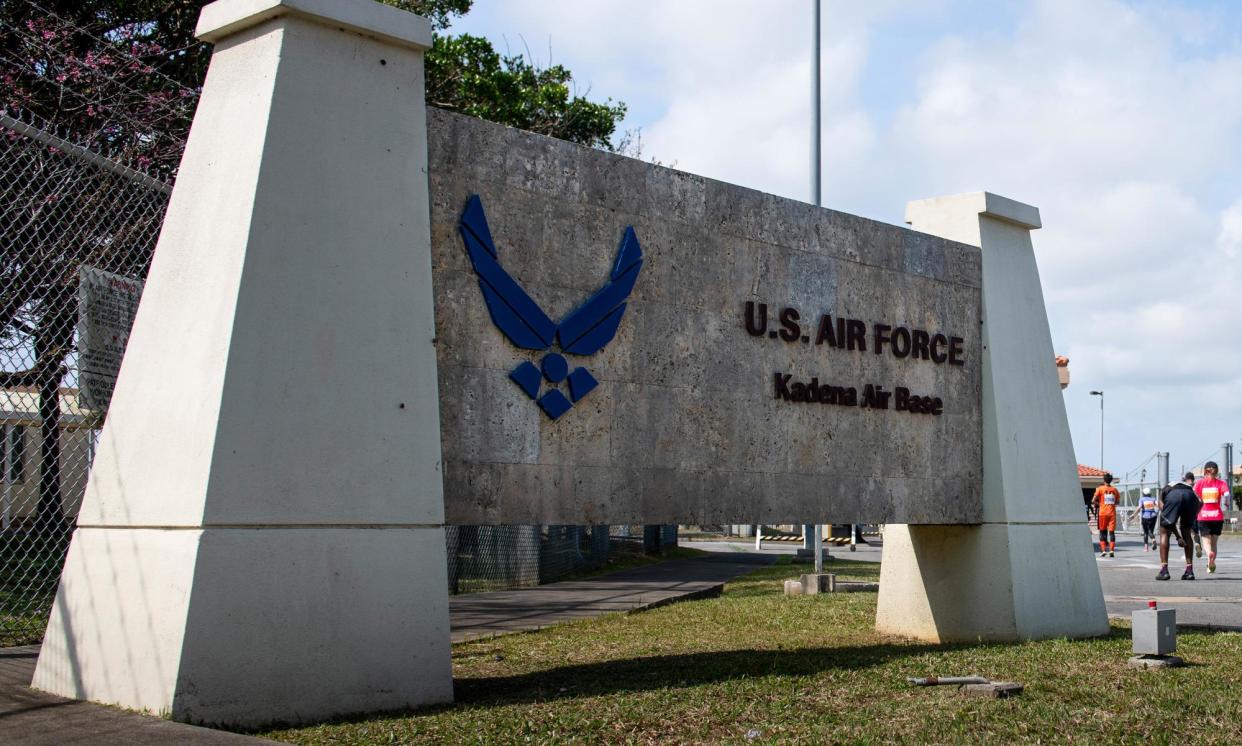US air force member charged with kidnapping and rape of teen in Okinawa

Prosecutors on the Japanese island of Okinawa have charged a US air force man with the kidnapping and rape of a teenage girl in December.
According to an indictment dated 27 March, Brennon Washington, 25, invited the girl to speak to him in his car at a park on 24 December and drove her to his residence before committing indecent acts.
Investigators said a person known to the girl – said to be between 13 and 15 years – reported the incident on the day it occurred. But Washington was not charged for three months and the indictment only made public on Tuesday.
The Japanese foreign ministry has lodged a complaint with the US ambassador to Japan, the former Chicago mayor Rahm Emanuel, said the Okinawa governor, Denny Tamaki.
The incident involving military personnel is likely to further inflame local opposition to their presence, Tamaki warned, saying that it “brought a significant level of distrust”. Tamaki described the allegations to Kyoto News as “not just disturbing to prefectural residents but also a violation of the girl’s dignity”.
Yoshimasa Hayashi, government spokesperson, said Japan “will continue to request the US side to prevent such incidents at every opportunity”.
Okinawa is home to one of the largest US foreign military bases, home to more than half of the 54,000 US soldiers serving in Japan, part of a legacy of the second world war and a component of current political and military alliances.
With tensions rising over China’s ambitions to bring Taiwan, less than 500 miles from Okinawa, under Beijing’s control, as well as North Korea’s missile tests, the latest incident may be unlikely to significantly affect larger diplomatic objectives.
Washington, Tokyo and Seoul aim to sign a trilateral security partnership by the end of 2024, in part driven by fears that a second Donald Trump presidency could roll back existing security agreements.
The allegations of rape by a US serviceman come almost 30 years after a 12-year-old Okinawa schoolgirl was raped by three US servicemen in 1995 that triggered a wave of public opposition to the US military presence.
Other incidents include a car accident in 2012 when a US navy officer killed two Japanese citizens during a trip to Mount Fuji, and the rape and murder of a 20-year-old woman in 2016 by a former US base worker who was later sentenced to life in prison. That case led to curfews for US troops all over Japan.
The latest incident comes as another layer of history plays out in the region: last week, families of US marines who fought in the Battle of Saipan in June and July 1944 participated in a wreath-laying ceremony on the island.
The battle with Japanese forces on the island in the North Marianas archipelago was pivotal to the war in the Pacific, as D-day had been to the war in Europe. Japan designated the islands as part of its “absolute national defense sphere” and had stationed more than 30,000 Imperial Japanese troops there.
On 7 July, three weeks after 71,000 US troops landed on the island, an estimated 4,000 Japanese charged US positions in one of the largest “banzai” charges of the war. Just 921 Japanese soldiers survived the Saipan assault, and the US took more than 16,500 casualties, including close to 3,500 killed.
The archipelago was used by the US air force to firebomb Tokyo and, a year later, to launch the Enola Gay and Bockscar to bomb Hiroshima and Nagasaki with atomic bombs.


